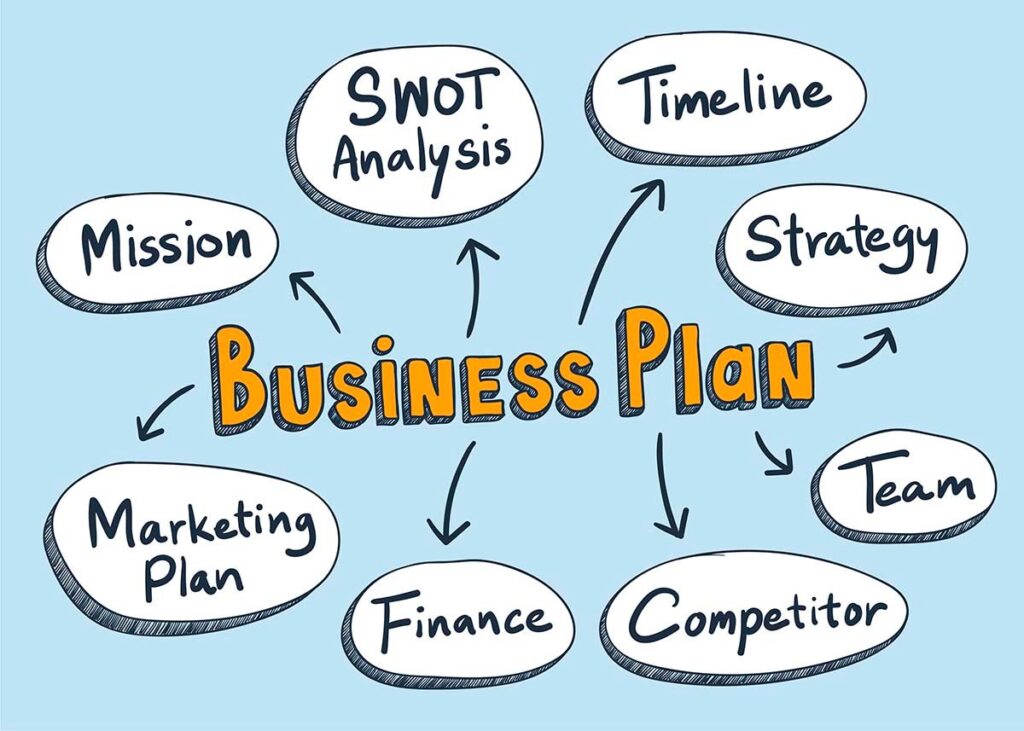How To Start a Home Business in Alberta

Are you an Albertan with an entrepreneurial spirit and a dream of being your own boss? Starting a home business in Alberta could be your pathway to financial independence and professional fulfillment. With its robust economy, supportive business environment, and diverse market opportunities, Alberta offers a fertile ground for aspiring entrepreneurs to turn their ideas into successful ventures.
In this comprehensive guide, we’ll walk you through the essential steps to launch your home-based business in Alberta. Whether you’re looking to capitalize on the province’s thriving energy sector, tap into its growing tech scene, or carve out a niche in another industry, we’ll provide you with the knowledge and resources you need to get started.
1. Understand Alberta’s Home Business Landscape
Alberta offers a vibrant environment for home-based businesses. You’ll find a supportive ecosystem that encourages entrepreneurship and innovation. The province boasts the lowest corporate tax in Canada and no provincial sales tax, making it an attractive place to start your venture.
Alberta’s economy is on an upward trajectory. Growth projections look promising, with 2.9% expected in 2024 and an average of 2.7% anticipated for 2026 and 2027. You’ll benefit from a young, educated, and diverse workforce. This talent pool can be a valuable resource as your business grows.
Remember to research local regulations and zoning laws. Some municipalities may have specific rules for home-based businesses. Alberta’s entrepreneurial spirit is strong, and you’ll find many resources to help you succeed. Libraries, online forums, and local business groups can provide valuable insights and networking opportunities.
2. Craft Your Home Business Idea
Developing a successful home business in Alberta starts with a solid concept. Your idea should align with market needs, target the right audience, and offer unique value.
Evaluate Market Demand
Start by researching potential business ideas that match your skills and interests. Look for gaps in the local market that you can fill. Consider emerging trends and industries with growth potential in Alberta.
Use online tools and local resources to assess demand. Conduct surveys or interviews with potential customers to gauge interest. Pay attention to competitor offerings and think about how you can improve upon them.
Remember, a sustainable home business addresses a real need or solves a problem for your target market.
Identify Your Target Audience
Define who your ideal customers are. Consider factors like:
- Age range
- Income level
- Location within Alberta
- Interests and hobbies
- Pain points your business can address
Create detailed customer personas to guide your marketing efforts. Understanding your audience helps you tailor your products or services to their specific needs and preferences.
Think about where your target customers spend time online and offline. This information will be valuable when you start promoting your home business.
Create a Unique Value Proposition
Your unique value proposition sets you apart from competitors. It’s the reason customers should choose your home business over others. To develop a strong UVP:
- List your product or service’s key benefits
- Identify what makes your offering special
- Explain how you solve customer problems better than alternatives
Be specific and focus on the outcomes customers can expect. Avoid generic claims like “best quality” or “great service.” Instead, highlight tangible advantages that resonate with your target audience. Test your UVP by sharing it with potential customers and gathering feedback. Refine it until it clearly communicates your home business’s unique strengths.
3. Develop a Business Plan
Creating a solid business plan is crucial for your home business in Alberta. It serves as a roadmap, guiding your decisions and helping you secure funding if needed. Let’s explore the key components of a strong business plan.

Outline Business Objectives
Start by clearly defining your business goals. What do you want to achieve in the short and long term? Be specific about your products or services and identify your target market. Set measurable targets for growth, revenue, and market share. These objectives will help you track progress and make adjustments as needed.
Don’t forget to include your mission statement. This concise declaration should capture the essence of your business and its core values.
Financial Planning and Projections
Accurate financial planning is essential for your home business success. Start by estimating your startup costs, including equipment, licenses, and initial inventory. Create a detailed budget for your first year of operations. Include all expected expenses such as:
- Utilities
- Marketing
- Supplies
- Insurance
Project your revenue based on realistic sales forecasts. Be conservative in your estimates to avoid overextending yourself financially. Develop a cash flow statement to ensure you’ll have enough money to cover expenses month-to-month. This tool is vital for managing your business’s financial health.
Consider seeking advice from a financial professional to refine your projections and explore financing options.
Detail Your Marketing Strategy
Your marketing plan should outline how you’ll attract and retain customers. Research your target audience thoroughly to understand their needs and preferences. Identify the most effective marketing channels for reaching your potential customers. In Alberta, this might include:
- Local online directories
- Social media platforms
- Community events
- Networking groups
Set a realistic marketing budget and allocate funds to different activities. Track the performance of each marketing effort to optimize your spending.
4. Register Your Business in Alberta
Registering your business in Alberta is a crucial step to establish your home-based enterprise legally. The process involves selecting a unique name, completing necessary paperwork, and understanding provincial regulations.
Choose a Business Name
Selecting a suitable name for your business is the first step. Your chosen name should be distinctive and not already in use. Business names in Alberta don’t have to be unique, but it’s wise to pick one that sets you apart. Consider these tips:
• Brainstorm several options that reflect your business
• Check name availability through Alberta’s corporate registry
• Avoid names similar to existing businesses or trademarks
• Ensure the name aligns with your brand and services
Remember, your business name will represent you, so choose wisely. Once you’ve settled on a name, you’re ready to move forward with registration.
Business Registration Process
Once you’ve selected a business name, conduct a name search through the Alberta Corporate Registry to ensure it’s available. Next, you’ll need to determine your business structure, such as sole proprietorship, partnership, or corporation. For home businesses, sole proprietorship should be the most suitable one. For sole proprietorships and partnerships, you can register your business name with a Registry Agent.
If you’re forming a corporation, you’ll need to file incorporation documents with Alberta Corporate Registry. Additionally, you may need to obtain specific licenses or permits depending on your industry and location. It’s also important to register for a Business Number with the Canada Revenue Agency for tax purposes.
If you plan to hire employees, you’ll need to register for workers’ compensation insurance with the Workers’ Compensation Board of Alberta. Finally, consider registering for the Goods and Services Tax (GST) if your annual revenue exceeds $30,000. It’s advisable to consult with a lawyer or accountant to ensure you’ve completed all necessary steps for your specific business needs.
Understand Provincial Regulations
Familiarize yourself with Alberta’s business regulations to ensure compliance:
• Obtain necessary licenses and permits for your specific industry
• Register for a business license if required by your municipality
• Understand tax obligations
• Review zoning laws for home-based businesses in your area
For example, Edmonton requires a development permit and business license for home-based businesses. Check with your local authorities for specific requirements in your city or town. Staying informed about regulations will help you operate your business smoothly and avoid potential legal issues.
5. Set Up Your Home Office
Creating a dedicated workspace is crucial for productivity and work-life balance. Your home office should be comfortable, functional, and conducive to focused work. Let’s explore how to organize your space, choose equipment, and ensure data security.
Organize Your Workspace
Start by selecting a quiet area in your home with good natural light. Clear out clutter and designate specific zones for different activities. Consider using a desk with drawers for storage and invest in ergonomic furniture to prevent strain during long work hours.
Use vertical space efficiently with shelving or wall-mounted organizers. Label containers and files for easy access. Keep frequently used items within arm’s reach to minimize distractions.
Read more: 11 Home Office Workspace Tips to Get Organized
Create a system for managing paperwork, such as a filing cabinet or digital storage solutions. This will help you stay organized and comply with business regulations.
Select Home Office Equipment
Invest in a reliable computer or laptop that meets your business needs. Choose a comfortable chair with proper back support and adjustable features. A good-quality printer, scanner, and backup drive are essential for most home businesses.
Consider noise-cancelling headphones if you work in a shared space. A webcam and microphone are crucial for virtual meetings. Don’t forget about proper lighting – a desk lamp can reduce eye strain during long work sessions.
Ensure you have a stable, high-speed internet connection. This is vital for online communication, file sharing, and accessing cloud-based services.
Ensure Data Security and Privacy
Protect your business and client information by implementing strong security measures. Use a reliable antivirus program and keep all software up-to-date. Set up a separate user account on your computer for work-related tasks.
Invest in a virtual private network to secure your internet connection, especially when handling sensitive data. Use strong, unique passwords for all your accounts and consider a password manager to keep track of them securely.
Back up your data regularly to an external hard drive or cloud storage service. Create a privacy policy for handling client information and ensure you’re compliant with data protection regulations in Alberta.
6. Market Your Home Business
Effective marketing is crucial for the success of your home business in Alberta. Focus on building an online presence, leveraging social media, and tapping into local networking opportunities to attract customers and grow your brand.
Build an Online Presence
Creating a strong online presence is essential for your home business. Start by developing a professional website that showcases your products or services. Ensure your site is mobile-friendly and optimized for search engines to improve visibility.
Consider starting a blog to share your expertise and attract potential customers. Use relevant keywords to boost your search rankings. Don’t forget to list your business on Google My Business and other online directories to increase local visibility.
Invest in professional-quality photos and videos to showcase your offerings. These visual elements can significantly enhance your website’s appeal and effectiveness in converting visitors into customers.
Utilize Social Media
Social media platforms offer powerful tools to market your home business. Choose the platforms that best align with your target audience. For example, Instagram and Pinterest are great for visual products, while LinkedIn works well for B2B services.
Create engaging content that provides value to your followers. Share behind-the-scenes glimpses of your business, customer testimonials, and helpful tips related to your industry. Use hashtags relevant to your business and location to increase your reach.
Consider running targeted ads on social media platforms to expand your audience. These ads can be cost-effective and allow you to reach potential customers based on demographics, interests, and location.
Leverage Local Networking
Don’t underestimate the power of local connections for your home business. Join your local chamber of commerce and attend networking events to meet other business owners and potential customers. These connections can lead to valuable partnerships and referrals.
Collaborate with complementary businesses for cross-promotion opportunities. For example, if you run a home-based bakery, partner with local coffee shops to supply baked goods. This strategy can help you reach new customers and build credibility in your local market.
7. Maintain Work-Life Balance

Starting a home business can be exciting, but it’s crucial to maintain a healthy work-life balance. Set clear boundaries between your work and personal life to avoid burnout. Your dedicated workspace will help you mentally separate your professional and personal environments. When you’re done for the day, leave your work area behind.
Establish a consistent schedule. Stick to regular work hours and resist the temptation to always be “on.” Remember, you’re running a business, not letting it run you. Take regular breaks throughout the day. The Pomodoro technique can help you stay focused and refreshed. Work for 25 minutes, then take a 5-minute break.
Don’t forget to prioritize self-care. Exercise, eat well, and get enough sleep. A healthy you means a healthy business. Set a schedule and stick to it. This is key to maintaining balance when working from home. Define your work hours and respect them.
Make time for family, friends, and hobbies. Your personal life shouldn’t take a backseat to your business. Remember why you started this journey in the first place. Lastly, don’t be afraid to unplug. Turn off notifications outside of work hours. Your business will still be there tomorrow, and you’ll be better equipped to handle it after a proper rest.
Frequently Asked Questions
Home-based business resources in Alberta
About the author
Maurice